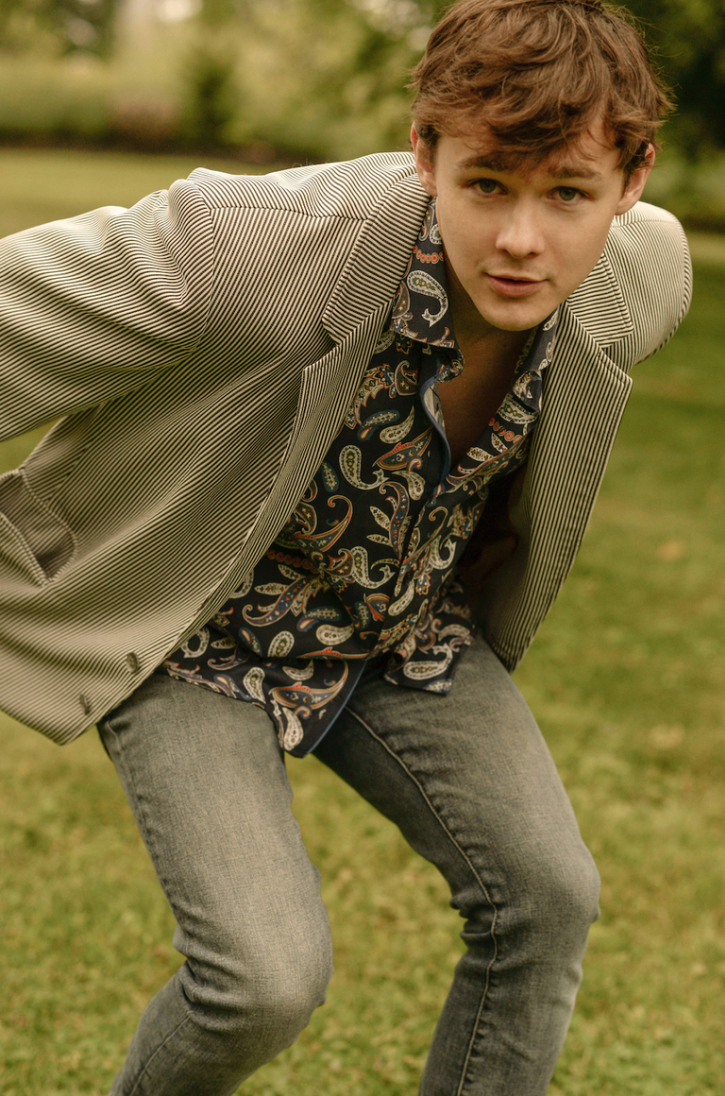 |
| Peter Mellekas |
Warning, finale spoilers ahead! In a new interview with Esquire, Dexter: New Blood star Jack Alcott talked about his life, Harrison Morgan, and the scene where he killed his own father. “I was worried about it after we shot it, because I was like, Oh my God, I killed Dexter. I'm going to be the most hated man in America for at least a week,” Jack Alcott says. “Because even though it is the right ending, the ending the show deserves, the ending the character deserves, the ending the character wants, there's definitely some guilt that comes with killing off one of the coolest TV characters of all time.”
He continued: “It's a divisive ending,” Jack says. “It's going to put a lot of people in tears. Some of them will be satisfied because it is a pretty fitting end, but a lot of people are also going to put their feet through their TVs.” He continues, “But I also feel incredibly blessed to be part of a story that's going to affect a lot of people. Whether it makes them angry, happy or sad, whether it makes them hate me, whatever, it’s cool to tell stories that affect people—regardless of what that effect is.”
Jack spoke with Esquire from his childhood home, a farm in Franklin, Tennessee, a town of 77,000 people 20 miles south of Nashville. He was previously in New York, living the struggling actor life, but moved back when the pandemic hit. “It didn't take long for me to be like, ‘I'm going to stop paying for my expensive closet apartment that no one's staying in and spend Covid here at home with my family,” he says.
“I have a wonderful relationship with my father, with both my parents, so I was sort of terrified coming into Harrison's role. The crux of this character is this really strange relationship between father and son and I don't know how that works”.
“Multiple times in the season, Harrison says ‘I have questions. I want answers.’ Which is how I approached it as an actor. To not have the answers is always better. It's always more compelling to watch someone really genuinely pursue something, than to telegraph knowing or pretending not to know,” Alcott says.
One season was enough for Alcott to pick up on a couple of Michael C. Hall’s mannerisms as Dexter, specifically his leaned back, hips-forward gait—“He's got a really swaggy walk. He kind of saunters,” Alcott says—and the way he tears into his hearty breakfast each morning. Jack was instructed to eat his food “like a fucking Tyrannosaurus rex.”
Behind the scenes, though, their relationship was more that of professional collaborators than of father-son or mentor-protégé. “I remember the creative team told me early on, ‘We want your input on the character so you're not just supporting Michael.’ I thought they were just being nice. But then on set I had lots of agency and people wanted to know what I have to say.”
The shooting scene of the finale was shot early in the production to make sure the scene would have snow on the ground. “It was the most stressful thing I think I experienced in the entire shoot,” Alcott says of the shooting scene. “I thought, How am I going to deliver a performance worthy of all this buildup? I’m missing all this context.”
 |
| Peter Mellekas |
“The gun came up way earlier in the original version of the scene, so that the entire scene was at gunpoint,” Alcott remembers. “In playing with it, we discovered that it comes up later, it makes a lot more room for a nuanced scene. It's less of just an angry son shooting his dad and more of a mutual discovery that this is how it's supposed to end and it won't work any other way.”
“I didn't realize that everyone else had redacted scripts. On the call sheet, the scene was described as ‘Harrison hugs Dexter.’ I totally spoiled it for a couple people. I was like, ‘That moment where I shoot him,’ and people would turn white and say, ‘What? No!’”
“Michael made a really cool comment about how Dexter sees Harrison as a little mirror. And that ends up being one of the things that, of course, pulls him apart because that's not what Harrison is,” Alcott says. “Before Harrison shoots him, Dexter says, ‘I don't think I've ever been able to love someone until now,’ Maybe it's not until that moment, but I think he gets there.”
“Harrison has a much stronger moral compass than Dexter, he’s more human. He's less of a sociopath than his father. He has empathy. Harrison definitely has a version of the Dark Passenger. But if Dexter's in the passenger seat/driving, then Harrison is in the third row and he can see it in the rearview mirror.”
“I love getting to play villains because it's so far from how I am as a person. It speaks to our interest in things that are dark. I don’t want this darkness in my own life, but I do want to touch it from a distance.”
The joy Harrison feels comes from his newfound sense of hope, Alcott says. “He’s never felt this way before. Harrison has grown up thinking he’s a monster, that there’s something wrong with him. In Iron Lake, he had friends, father figures, a town that loves him. He realizes he’s able to live a normal life.”
Source: Esquire
